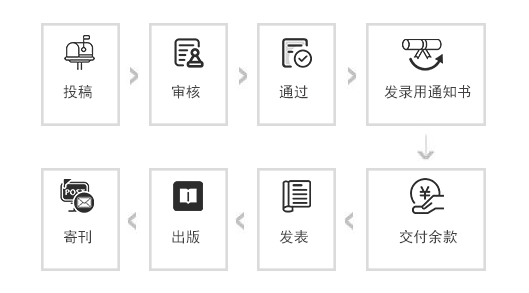Energy Research & Social Science



- 中国知网数据库(CNKI)全文收录期刊
- 中国核心期刊(遴选)数据库收录期刊
- 中国万方数据库全文收录期刊
- 中国维普科技期刊数据库收录期刊
- 中国龙源数据库全文收录期刊
- 中国期刊网全文收录期刊



中国高校科技期刊研究会第9次会员代表大会在北京召开,中宣部出版局副局长张怀海、教育部科学技术与信息化司一级巡视员张国辉等领导出席会议并发表..
英文简介:Peer reviewed international journal that examines the relationship between energy systems and societyEnergy Research & Social Science (ERSS) is a peer-reviewed international journal that publishes original research and review articles examining the relationship between energy systems and society. ERSS covers a range of topics revolving around the intersection of energy technologies, fuels, and resources on one side; and social processes and influences - including communities of energy users, people affected by energy production, social institutions, customs, traditions, behaviors, and policies - on the other. Put another way, ERSS investigates the social system surrounding energy technology and hardware. ERSS is of relevance for energy practitioners, researchers interested in the social aspects of energy production or use, and policymakers.Energy Research & Social Science (ERSS) provides an interdisciplinary forum for the discussion of how social and technical issues related to both energy production and consumption interact. Energy production, distribution, and consumption all have both technical and human components, and the latter involve the human causes and consequences of energy-related activities and processes as well as social structures that shape how people interact with energy systems. Energy analysis therefore needs to look beyond the dimensions of technology and economics to include these social and human elements.The journal's authorship is therefore not restricted to any discipline, but it is restricted in terms of quality and subject matter-articles are accepted based on merit, and their focus on the intersection of human activity (at whatever level of analysis) and energy systems (at whatever level of analysis). The editors emphasize that cross cultural, comparative, mixed-methods research is especially encouraged, and discourage submission of single-country case studies and/or studies that rely only on one method in isolation. Authors of single country studies, if submitted, must demonstrate that they have situated their study in the broader context and have highlighted the significance of their study. In addition, studies that utilize primarily engineering methods and econometric models must primarily focus on the "social" side of energy use and clearly meet the aims and scope of the journal.Disciplinarily, submissions are thus welcome from all fields of inquiry since the editors recognize that in many cases high quality research may not fit into any predetermined category. Moreover, the journal will not exclude any energy source, technology, system, topic, or energy service from the scope of its articles.中文简介:(来自Google、百度翻译)同行审查国际期刊,审查能源系统和社会之间的关系《能源研究与社会科学》(ERSS)是一份同行评议的国际期刊,发表原创研究和评论文章,探讨能源系统与社会之间的关系。ERSS涵盖了一系列主题,一方面围绕能源技术、燃料和资源的交叉;社会进程和影响- -包括能源使用者社区、受能源生产影响的人民、社会机构、习俗、传统、行为和政策- -对另一方面的影响。换句话说,ERSS调查围绕能源技术和硬件的社会系统。ERSS对能源从业者、对能源生产或使用的社会方面感兴趣的研究人员和决策者具有相关性。能源研究与社会科学(ERSS)提供了一个跨学科的论坛,讨论与能源生产和消费相关的社会和技术问题如何相互作用。能源生产、分配和消费都有技术和人的组成部分,人的组成部分涉及与能源有关的活动和过程的人为原因和后果,以及形成人们如何与能源系统相互作用的社会结构。因此,能源分析需要超越技术和经济的范畴,纳入这些社会和人的因素。因此,该期刊的作者并不局限于任何学科,而是在质量和主题方面受到了限制——文章是基于优点被接受的,它们关注的是人类活动(无论分析水平如何)和能量系统(无论分析水平如何)的交集。编辑们强调,特别鼓励跨文化、比较、混合方法的研究,不鼓励提交单一国家的案例研究和/或单独依赖一种方法的研究。单一国家研究的作者,如果提交,必须证明他们已经把他们的研究放在更广泛的背景下,并强调了他们的研究的重要性。此外,主要利用工程方法和计量经济学模型的研究必须主要集中在能源使用的“社会”方面,并明确满足该杂志的目标和范围。因此,从学科的角度来看,由于编辑们认识到,在许多情况下,高质量的研究可能不属于任何预先确定的类别,因此欢迎来自所有研究领域的投稿。此外,本刊不会将任何能源、技术、系统、主题或能源服务排除在其文章范围之外。










英文简介:Peer reviewed international journal that examines the relationship between energy systems and societyEnergy Research & Social Science (ERSS) is a peer-reviewed international journal that publishes original research and review articles examining the relationship between energy systems and society. ERSS covers a range of topics revolving around the intersection of energy technologies, fuels, and resources on one side; and social processes and influences - including communities of energy users, people affected by energy production, social institutions, customs, traditions, behaviors, and policies - on the other. Put another way, ERSS investigates the social system surrounding energy technology and hardware. ERSS is of relevance for energy practitioners, researchers interested in the social aspects of energy production or use, and policymakers.Energy Research & Social Science (ERSS) provides an interdisciplinary forum for the discussion of how social and technical issues related to both energy production and consumption interact. Energy production, distribution, and consumption all have both technical and human components, and the latter involve the human causes and consequences of energy-related activities and processes as well as social structures that shape how people interact with energy systems. Energy analysis therefore needs to look beyond the dimensions of technology and economics to include these social and human elements.The journal's authorship is therefore not restricted to any discipline, but it is restricted in terms of quality and subject matter-articles are accepted based on merit, and their focus on the intersection of human activity (at whatever level of analysis) and energy systems (at whatever level of analysis). The editors emphasize that cross cultural, comparative, mixed-methods research is especially encouraged, and discourage submission of single-country case studies and/or studies that rely only on one method in isolation. Authors of single country studies, if submitted, must demonstrate that they have situated their study in the broader context and have highlighted the significance of their study. In addition, studies that utilize primarily engineering methods and econometric models must primarily focus on the "social" side of energy use and clearly meet the aims and scope of the journal.Disciplinarily, submissions are thus welcome from all fields of inquiry since the editors recognize that in many cases high quality research may not fit into any predetermined category. Moreover, the journal will not exclude any energy source, technology, system, topic, or energy service from the scope of its articles.中文简介:(来自Google、百度翻译)同行审查国际期刊,审查能源系统和社会之间的关系《能源研究与社会科学》(ERSS)是一份同行评议的国际期刊,发表原创研究和评论文章,探讨能源系统与社会之间的关系。ERSS涵盖了一系列主题,一方面围绕能源技术、燃料和资源的交叉;社会进程和影响- -包括能源使用者社区、受能源生产影响的人民、社会机构、习俗、传统、行为和政策- -对另一方面的影响。换句话说,ERSS调查围绕能源技术和硬件的社会系统。ERSS对能源从业者、对能源生产或使用的社会方面感兴趣的研究人员和决策者具有相关性。能源研究与社会科学(ERSS)提供了一个跨学科的论坛,讨论与能源生产和消费相关的社会和技术问题如何相互作用。能源生产、分配和消费都有技术和人的组成部分,人的组成部分涉及与能源有关的活动和过程的人为原因和后果,以及形成人们如何与能源系统相互作用的社会结构。因此,能源分析需要超越技术和经济的范畴,纳入这些社会和人的因素。因此,该期刊的作者并不局限于任何学科,而是在质量和主题方面受到了限制——文章是基于优点被接受的,它们关注的是人类活动(无论分析水平如何)和能量系统(无论分析水平如何)的交集。编辑们强调,特别鼓励跨文化、比较、混合方法的研究,不鼓励提交单一国家的案例研究和/或单独依赖一种方法的研究。单一国家研究的作者,如果提交,必须证明他们已经把他们的研究放在更广泛的背景下,并强调了他们的研究的重要性。此外,主要利用工程方法和计量经济学模型的研究必须主要集中在能源使用的“社会”方面,并明确满足该杂志的目标和范围。因此,从学科的角度来看,由于编辑们认识到,在许多情况下,高质量的研究可能不属于任何预先确定的类别,因此欢迎来自所有研究领域的投稿。此外,本刊不会将任何能源、技术、系统、主题或能源服务排除在其文章范围之外。
来稿要求:
论点新颖、论证严密、论据充足、文字精练。论文字数:5000字符-8000字符为宜,图表也要计算在内,不包括英文摘要关键词。
标 题:
文章标题要言简意赅,30字以内。作者署名:署真实姓名,注明作者单位、单位所在省市和邮政编码。摘 要:要用第三人称概括全文,300字以内。
关 键 词:
用3~8个关键词术语反映论文主题。专用符号:名词、术语、数字、计量单位、标点符号和数学符号等,必须符合国家标准;外文人名、地名和术语需译成中文。
图表格式:
文中插图与表格放在相应正文之后,分别按出现顺序用图1、图2或表1、表2统一编号。插图应为黑白色,其序号、标题及注释居中放在图的下方,表格的序号及标题置于表格上方,表注放在表格的下方(建议:由于篇幅限制,除核心期刊外尽量不用或少用图表)。
正文注释:
采用尾注形式,注释号①,②,③等标在相应正文右上角。
章节体例:
章节标题为:一级标题不编号,用黑体居中排,二级标题不编号,用楷体放在相应的文字段首与正文空一字格接排正文。 三级标题分别用1.2.3.顺序编号。文中接排标题用(1),(2)编号。
参考文献:
参考文献置于正文之后,近5年的不少于3条,用[1],[2]……顺序编号,如文章中有内容需要解释请用尾注形式。参考文献不全者不能进入审稿阶段。{参考文献格式如下:(1)图书:作者.书名(版本)[M].出版所在地: 出版社,出版年:(1)页码.
(2)期刊:作者.题目[J].期刊名,年,卷(期):页码.
(3)电子参考文献:作者.题目[OL].(文章的发表日期).[本文引用日期].作者简介:来稿者请附个人简介,内容包括姓名(出生年—),性别,籍贯,民族,学历,工作单位,职称,研究方向,通讯地址,联系电话及电子信箱。
一般情况下,您将在3个工作日内收到审稿结果。如文章有很强的时效性,请说明需要最晚刊发时间。
| 论文编号 | 作者姓名 | 论文题目 | 录用情况 |
|---|---|---|---|
| TG251-13579 | 韩丽炘 孟涛 温娟娟 刘晓琴 | 基于互联网的CBL+TBL教学法在病理学实验教学中的应用 | 已录用 |
| TG251-13681 | 邹隆强 杨清余 钟鸿路 李正南 陈 | 医学运动康复联合消肿止痛方治疗急性踝关节扭伤临床研究 | 已录用 |
| TG251-13794 | 林雨慧 陈霄雯 郑颖彦 朱永凯 贾 | 基于SWOT模型的儿童专科医院临床研究发展策略分析 | 已录用 |
| TG251-13762 | 郑鸿雁 | 重复经颅磁刺激治疗肝脾不调型功能性肛门直肠痛的临床研究 | 已录用 |
| TG251-13891 | 袁召1 赵会谢2 赵海深3 | 真武汤治疗阳虚水泛型慢性心力衰竭患者的临床研究 | 已录用 |
| TG251-13536 | 王杰1 张蕾蕾2 | 血脂和载脂蛋白水平与分化型甲状腺癌及其病理学特征的相关性探究 | 已录用 |
| GD24-5203 | 单一青 高鹏慧 姚瑶 | 思维导图护理对宫颈癌患者行腹腔镜术后康复的影响 | 已录用 |
| GD24-5217 | 林秀娟 梁静文 刘美仙 陈惠贤 | 加速康复外科管理模式在胸腔镜肺段切除术患者围手术期护理中的应用效果 | 已录用 |
| GD24-5213 | 杨素雯 何洁芳 陈妙霞 廖景升 | 健康行为改变整合理论对于宫颈癌晚期放疗患者依从性及自我效能的影响 | 已录用 |
| GD24-5199 | 杨月惠 王凤婷 | 个体护理计划在心脏瓣膜置换手术围手术期患者中的应用 | 已录用 |
邮箱:cnkibianjibu@163.com
QQ:
扫码联系: